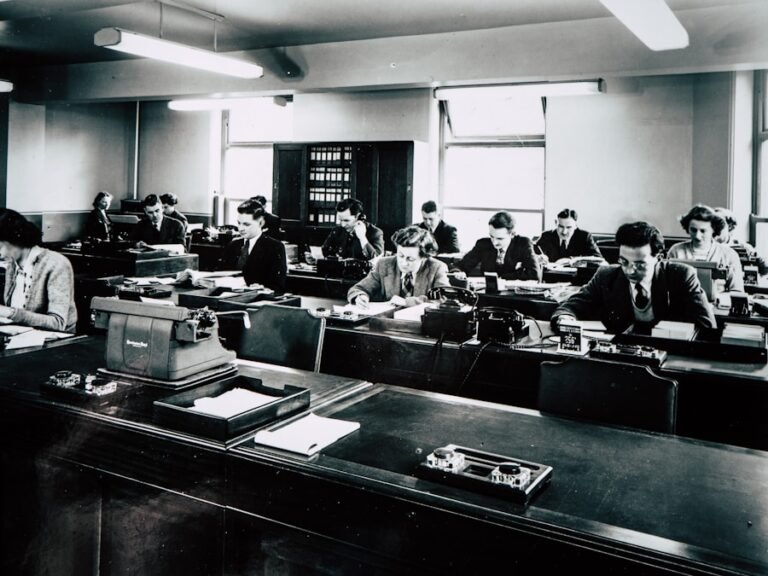The Ultimate Guide for International Students Seeking Employment in the USA
The US job market is a dynamic and competitive environment that offers a wide range of opportunities for both domestic and international job seekers. With a diverse economy that spans various industries such as technology, finance, healthcare, and manufacturing, the US job market is known for its innovation and entrepreneurial spirit. Understanding the US job market involves researching the current trends and demands in different sectors, as well as identifying the skills and qualifications that are highly sought after by employers. It is important to stay updated on the latest job market trends and economic indicators to make informed decisions about career opportunities in the US.
In addition to understanding the demand for specific skills and qualifications, it is also crucial to be aware of the cultural and professional norms that shape the US job market. For example, networking and personal branding are highly valued in the US, and job seekers are often expected to actively engage in professional networking events and online platforms to build connections and expand their opportunities. Furthermore, the US job market is known for its emphasis on meritocracy and performance-based evaluations, which means that job seekers need to demonstrate their skills and achievements through tangible evidence such as work experience, certifications, and project portfolios. Overall, understanding the US job market requires a comprehensive understanding of its economic landscape, cultural norms, and professional expectations.
Navigating Work Visa and Legal Requirements
For international job seekers looking to work in the US, navigating work visa and legal requirements is a crucial step in the job search process. The US has a complex immigration system that governs the entry and employment of foreign nationals, and understanding the different visa categories and eligibility criteria is essential for securing legal authorization to work in the country. The most common work visas for international job seekers include the H-1B visa for specialty occupations, the L-1 visa for intracompany transfers, and the O-1 visa for individuals with extraordinary abilities in their field. Each visa category has specific requirements and application processes that must be carefully followed to ensure compliance with US immigration laws.
In addition to obtaining the necessary work visa, international students job seekers must also be aware of their legal rights and responsibilities as employees in the US. This includes understanding labor laws, tax obligations, and workplace regulations that govern employment relationships in the country. It is important to seek legal counsel or guidance from immigration professionals to navigate the complexities of work visa and legal requirements, as any missteps or violations could have serious consequences for an individual’s immigration status and employment prospects in the US. Overall, navigating work visa and legal requirements is a critical aspect of the job search process for international job seekers seeking employment in the US.
Building a Professional Network
Building a professional network is an essential component of a successful job search in the US. In a competitive job market, having a strong network of professional contacts can provide valuable insights, referrals, and opportunities for career advancement. Networking can take various forms, including attending industry events, joining professional associations, participating in online forums, and leveraging social media platforms such as LinkedIn to connect with potential employers and industry influencers. Building a professional network requires proactive engagement and relationship-building skills to establish meaningful connections with individuals who can support and guide your career aspirations.
Furthermore, building a professional network also involves cultivating a personal brand that reflects your skills, expertise, and professional identity. This may include creating a compelling online presence through a professional website or portfolio, showcasing your achievements and thought leadership through content creation or public speaking engagements, and actively contributing to industry discussions and conversations. By positioning yourself as a valuable and reputable professional within your network, you can attract opportunities and collaborations that align with your career goals. Overall, building a professional network is an ongoing process that requires strategic networking efforts and genuine relationship-building to expand your career prospects in the US job market.
Crafting an Effective Resume and Cover Letter
Crafting an effective resume and cover letter is essential for making a strong impression on potential employers in the US job market. A well-crafted resume should highlight your relevant skills, qualifications, and experiences in a clear and concise format that captures the attention of hiring managers. This may include using action-oriented language to describe your accomplishments, quantifying your achievements with measurable results, and tailoring your resume to align with the specific requirements of each job application. Additionally, including a professional summary or objective statement at the beginning of your resume can provide a brief overview of your career goals and value proposition as a candidate.
Similarly, a compelling cover letter serves as an opportunity to introduce yourself to potential employers and convey your enthusiasm for the position. A strong cover letter should be customized for each job application, addressing the specific requirements of the role and showcasing your understanding of the company’s mission and values. It is important to use the cover letter to articulate how your skills and experiences make you a strong fit for the position, as well as to express your interest in contributing to the organization’s success. Crafting an effective resume and cover letter requires attention to detail, strong communication skills, and a thorough understanding of how to present yourself as a competitive candidate in the US job market.
Mastering the Job Interview
Mastering the job interview is a critical step in securing employment opportunities in the US. Job interviews provide candidates with the opportunity to showcase their qualifications, personality, and fit within an organization, while also allowing employers to assess their potential as future employees. To master the job interview process, it is important to prepare thoroughly by researching the company, understanding the job requirements, and practicing responses to common interview questions. This may involve conducting mock interviews with friends or mentors, rehearsing your responses to behavioral-based questions, and developing compelling examples of your achievements and problem-solving abilities.
In addition to preparation, mastering the job interview also requires strong communication skills, confidence, and professionalism during the interview itself. This includes demonstrating active listening, asking thoughtful questions about the role and company culture, and conveying your enthusiasm for the opportunity. Nonverbal communication such as body language, eye contact, and attire also play a significant role in making a positive impression during the interview process. Furthermore, following up with a thank-you note or email after the interview can reinforce your interest in the position and leave a lasting impression on potential employers. Overall, mastering the job interview involves thorough preparation, effective communication skills, and a genuine enthusiasm for the opportunity.
Exploring Internship and Job Opportunities
Exploring internship and job opportunities is an important aspect of the job search process for both recent graduates and experienced professionals in the US. Internships provide valuable hands-on experience in a specific industry or field, allowing individuals to gain practical skills, build professional networks, and explore potential career paths. Many companies offer internship programs that can lead to full-time employment opportunities for high-performing interns. Similarly, job seekers can explore entry-level or experienced positions through various channels such as online job boards, company career websites, recruitment agencies, and professional networking events.
In addition to traditional job search methods, exploring internship and job opportunities also involves leveraging personal connections and referrals from professional contacts. Networking with alumni from your university, reaching out to industry professionals through informational interviews, and attending career fairs or industry conferences can provide access to hidden job opportunities that may not be publicly advertised. Furthermore, utilizing online platforms such as LinkedIn or industry-specific forums can help job seekers discover potential openings and connect with hiring managers or recruiters. Exploring internship and job opportunities requires proactive research, strategic networking efforts, and a willingness to explore diverse avenues for career advancement in the US job market.
Overcoming Cultural and Language Barriers
For international job seekers navigating the US job market, overcoming cultural and language barriers is an important consideration in their career journey. Adapting to a new cultural environment involves understanding workplace norms, communication styles, and professional etiquette that may differ from one’s home country. This may include familiarizing oneself with American business customs such as punctuality, direct communication, teamwork dynamics, and workplace hierarchy. Additionally, developing cultural intelligence by learning about American values, traditions, and social norms can help international job seekers navigate cultural differences more effectively.
Language barriers can also present challenges for international job seekers seeking employment in the US. While English proficiency is often a requirement for many jobs in the country, non-native English speakers may face difficulties in expressing themselves fluently during interviews or communicating effectively in professional settings. Overcoming language barriers may involve enrolling in language courses or workshops to improve English language skills, practicing conversational English with native speakers or language partners, and seeking feedback on written communication such as resumes or cover letters from language professionals or mentors.
Leveraging technology such as language translation tools or language learning apps can provide support for international job seekers as they navigate language barriers in their job search process. Overall, overcoming cultural and language barriers requires adaptability, open-mindedness, and a willingness to learn about new cultural contexts while honing language skills for success in the US job market.
Read Also: The Ins and Outs of Working as a Foreign Student in the USA
Conclusion
Navigating the US job market involves understanding its economic landscape, legal requirements for work authorization, building a professional network, crafting effective application materials such as resumes and cover letters, mastering the job interview process, exploring internship and job opportunities through diverse channels, as well as overcoming cultural and language barriers for international job seekers.
By equipping oneself with knowledge about these key aspects of the US job market and developing relevant skills for success in this competitive environment, individuals can enhance their prospects for meaningful employment opportunities in various industries across the country. With strategic planning, proactive networking efforts, continuous learning, and adaptability to new cultural contexts, job seekers can position themselves for success in their career pursuits within the dynamic US job market.







